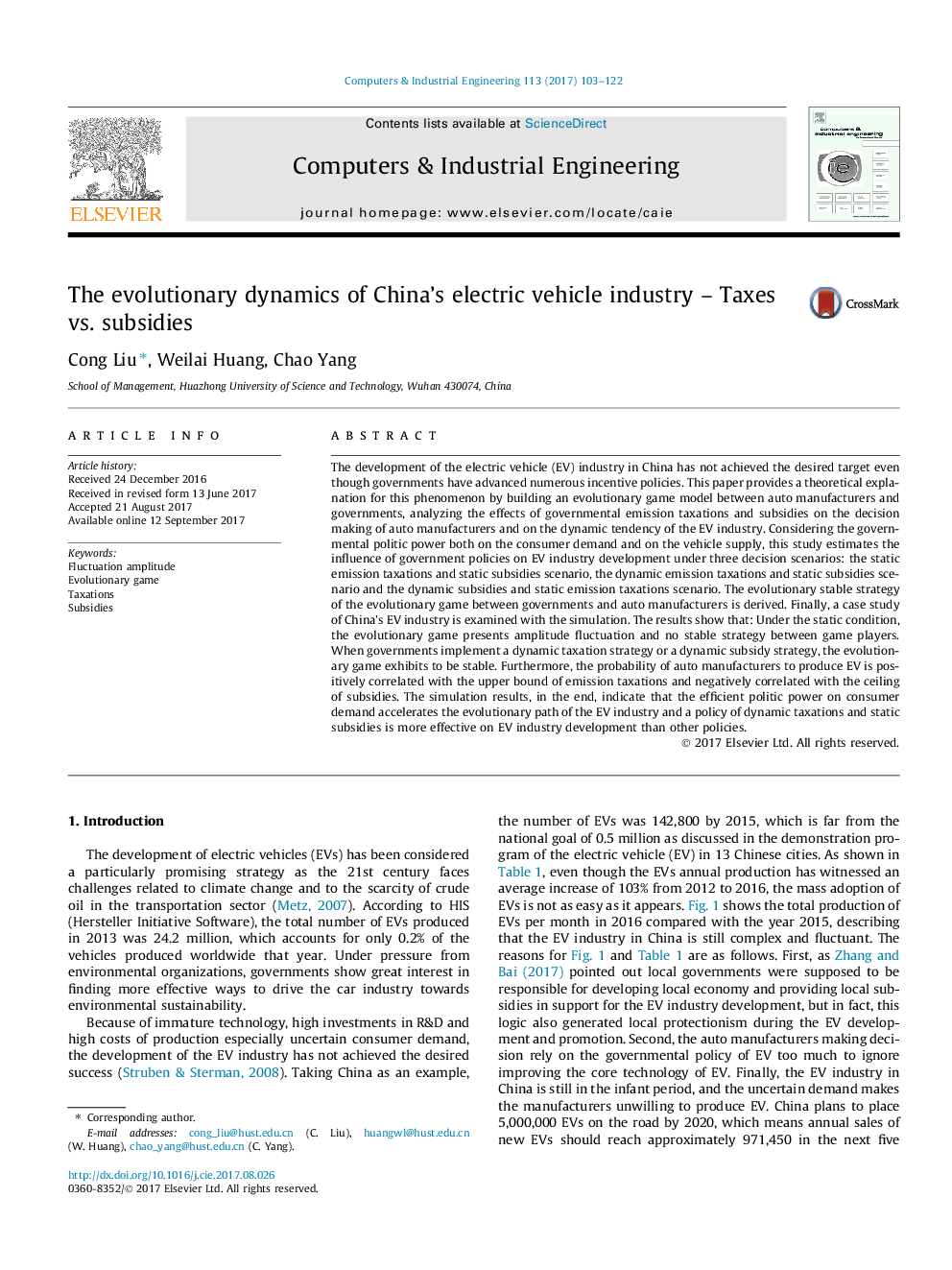| کد مقاله | کد نشریه | سال انتشار | مقاله انگلیسی | نسخه تمام متن |
|---|---|---|---|---|
| 5127424 | 1489053 | 2017 | 20 صفحه PDF | دانلود رایگان |
- The production fluctuation in Electric Vehicle (EV) industry is explained by evolutionary game.
- The optimal decision of two players and Nash equilibrium is derived in three decision scenarios.
- The influence of government intervening in consumer demand and vehicle supply on EV industry development path is examined.
- The policy of dynamic emission taxations and static subsidies is more effective in the EV industry development.
The development of the electric vehicle (EV) industry in China has not achieved the desired target even though governments have advanced numerous incentive policies. This paper provides a theoretical explanation for this phenomenon by building an evolutionary game model between auto manufacturers and governments, analyzing the effects of governmental emission taxations and subsidies on the decision making of auto manufacturers and on the dynamic tendency of the EV industry. Considering the governmental politic power both on the consumer demand and on the vehicle supply, this study estimates the influence of government policies on EV industry development under three decision scenarios: the static emission taxations and static subsidies scenario, the dynamic emission taxations and static subsidies scenario and the dynamic subsidies and static emission taxations scenario. The evolutionary stable strategy of the evolutionary game between governments and auto manufacturers is derived. Finally, a case study of China's EV industry is examined with the simulation. The results show that: Under the static condition, the evolutionary game presents amplitude fluctuation and no stable strategy between game players. When governments implement a dynamic taxation strategy or a dynamic subsidy strategy, the evolutionary game exhibits to be stable. Furthermore, the probability of auto manufacturers to produce EV is positively correlated with the upper bound of emission taxations and negatively correlated with the ceiling of subsidies. The simulation results, in the end, indicate that the efficient politic power on consumer demand accelerates the evolutionary path of the EV industry and a policy of dynamic taxations and static subsidies is more effective on EV industry development than other policies.
Journal: Computers & Industrial Engineering - Volume 113, November 2017, Pages 103-122
